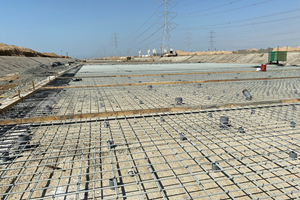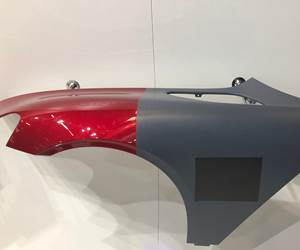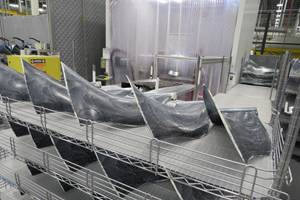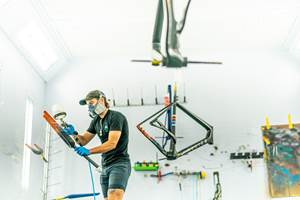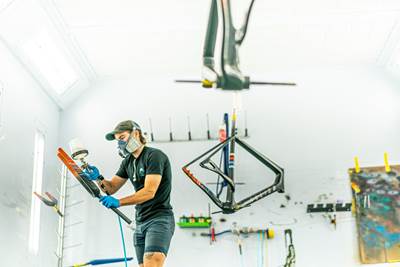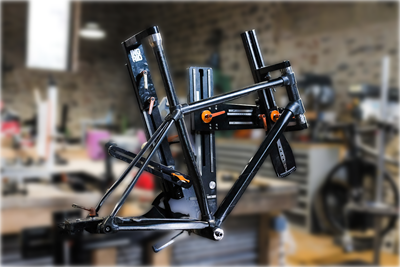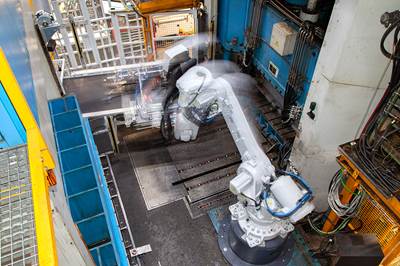Rein4ced, Dieffenbacher automate large-scale production of CFRP bike frames
A synergistic alliance combining Dieffenbacher’s production automation with Rein4ced’s hybrid Feather composite led to fully automated bike frame production line, which will be expanded to other composite products.
A dynamic collaboration between Rein4ced (Leuven, Belguim) and Dieffenbacher (Eppingen, Germany) seeks to tighten the integration of product and machine development, propelling the large-scale production of carbon fiber-reinforced thermoplastic (CFRTP) bicycle frames, with an additional effort to shift toward environmentally conscious composites manufacturing practices.
In addition to being brittle and more vulnerable to direct impact, carbon fiber bike frames are not sustainable. Alternatively, thermoplastic composites enable efficient and effective reuse, repurposing or recycling. To address the weak impact resistance of carbon fiber, Rein4ced has also introduced a hybrid material — called Feather — that prevents unexpected breaking after impact. By reinforcing carbon fiber frames with thin steel fibers, the patented Feather frames exhibit metal-like structural behavior.
However, in addition to an enhanced composite material, the production method of developing thermoplastic composite unidirectional (UD) tapes for Rein4ced’s novel bicycle frames requires further optimization to enhance more sustainable production. In line with this collaboration, Rein4ced and Dieffenbacher designed and built a thermoplastic production line in Belgium, led by the latter’s extensive expertise in the design, customizing and manufacturing of automated production. The resulting serial production lines for thermoplastic bicycle frames are based on Dieffenbacher’s Tailored Blank Line consisting of tape laying system Fiberforge and consolidation system Fibercon.
“Together, we want to bridge the gap from pioneering product design and development, over automated production, to mass production of next-generation frames for leading bicycle manufacturers,” Johan Miermans, CEO of Rein4ced, says. “Our customers will benefit from the nearshoring of production to their assembly plants and fast and flexible product deliveries, as well as the possibility to offer their end consumers a durable and sustainable alternative to current carbon [fiber] bike frames. Afterwards, we will expand on our collaboration towards the mass production of other high-performance composite products in sports and leisure as well as industrial, automotive and aero industries.”
Christian Dieffenbacher, CEO of Dieffenbacher, says the company considers itself a sparring partner for Rein4ced. “We improve continuously to help customers like Rein4ced seize new market opportunities, master the transition to digitalization and benefit from highly efficient system solutions for the sustainable production of composite components such as thermoplastic carbon [fiber] bicycle frames.”
The first automated Tailored Blank Line is located at the Rein4ced factory in Leuven, Belgium. This line has been operational since 2020, automating the laying and consolidation of UD tapes, respectively, to ensure proper fiber orientation and prevent material porosities. It has played a crucial role in advancing the capability to manage intricate and complex blanks with substantial thickness variations.
The finished blanks then go to the thermoforming line. This line contains a (pre)heating oven and a Dieffenbacher Fiberpress, which forms the blanks into shell parts. All parts are assembled and fused to form a monocoque bicycle frame. Excess material from the press-formed shells is removed and shredded, ready for reuse and recycling.
“Testing new solutions in production-related applications is essential for a successful market launch. We appreciate the opportunity to receive direct feedback from Rein4ced on our developments and to gain more insight into how the technology is used and where there is still potential for development,” Georg Obermaier, head of the Forming Business Unit at Dieffenbacher, notes. “This helps us a lot to incorporate trends that we see with our customers into future technology developments. The ongoing bicycle frame project is an ideal example of a win-win cooperation between customer and supplier, which not only benefits Rein4ced and Dieffenbacher, but can also be of great benefit to the industry as a whole.”
Notably, the Rein4ced factory in Leuven is poised to evolve into a pilot facility, where diverse composite products undergo various stages toward achieving mass production. These products, mass-produced in the factory are poised to cater to diverse markets worldwide, marking a significant leap forward in the global adoption of advanced composite materials.
Related Content
Composite rebar for future infrastructure
GFRP eliminates risk of corrosion and increases durability fourfold for reinforced concrete that meets future demands as traffic, urbanization and extreme weather increase.
Read MoreThe state of recycled carbon fiber
As the need for carbon fiber rises, can recycling fill the gap?
Read MorePlant tour: Albany Engineered Composites, Rochester, N.H., U.S.
Efficient, high-quality, well-controlled composites manufacturing at volume is the mantra for this 3D weaving specialist.
Read MoreCycling forward with bike frame materials and processes
Fine-tuning of conventional materials and processes characterizes today’s CFRP bicycle frame manufacturing, whether in the large factories of Asia or at reshored facilities in North America and Europe. Thermoplastic resins and automated processes are on the horizon, though likely years away from high-volume production levels.
Read MoreRead Next
Cycling forward with bike frame materials and processes
Fine-tuning of conventional materials and processes characterizes today’s CFRP bicycle frame manufacturing, whether in the large factories of Asia or at reshored facilities in North America and Europe. Thermoplastic resins and automated processes are on the horizon, though likely years away from high-volume production levels.
Read MoreThermoplastic composite, tube-shaped preforms for large-volume manufacturing
Starting with the sporting goods and bicycle market, French startup 3DiTex targets its continuous preforming system for thermoformable, thermoplastic composite tubes in complex geometries.
Read MoreAutoneum future-proofs GFRTP production with Evoris digitalization platform
Extensive plant modernization includes new automation and digitalization solutions procured from Dieffenbacher.
Read More

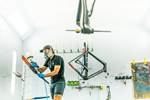
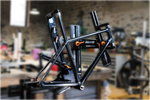
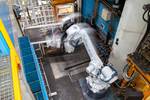
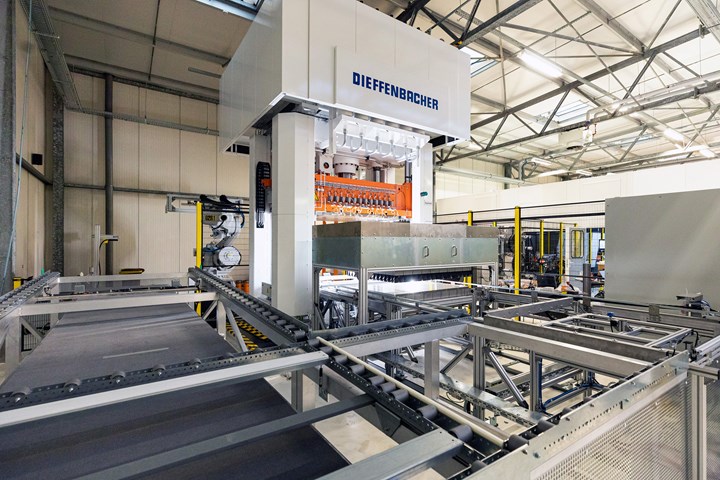


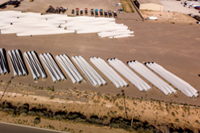
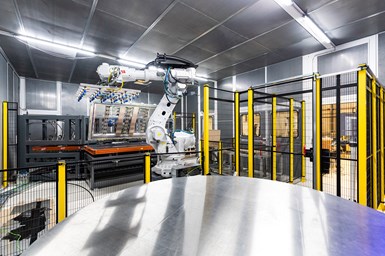

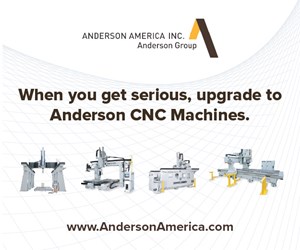

.jpg;maxWidth=300;quality=90)







